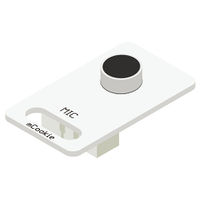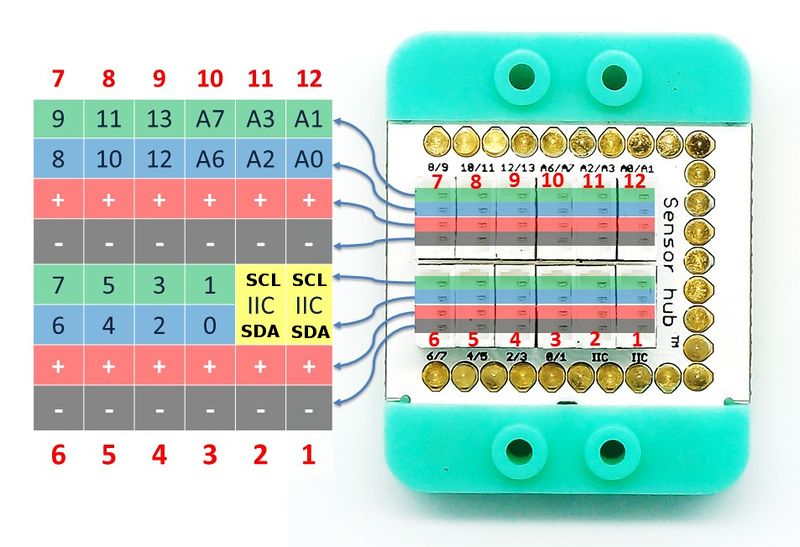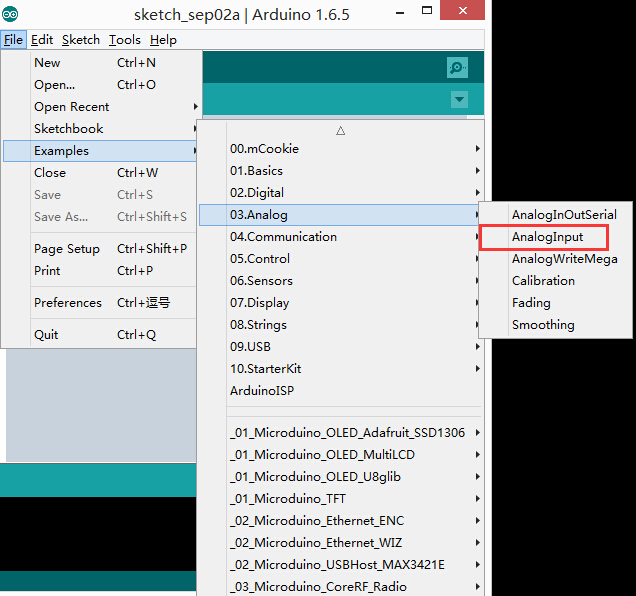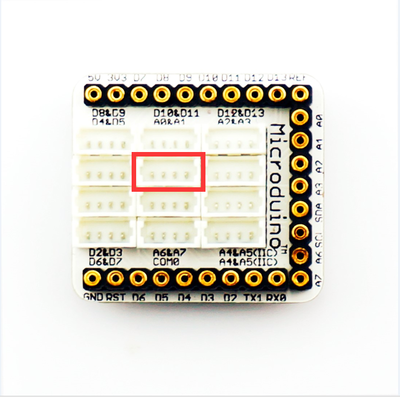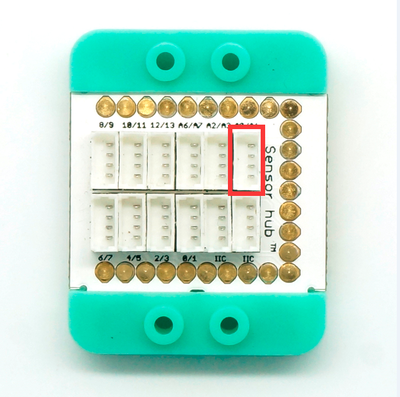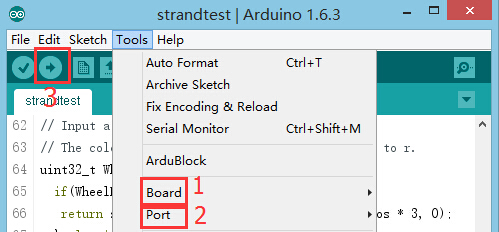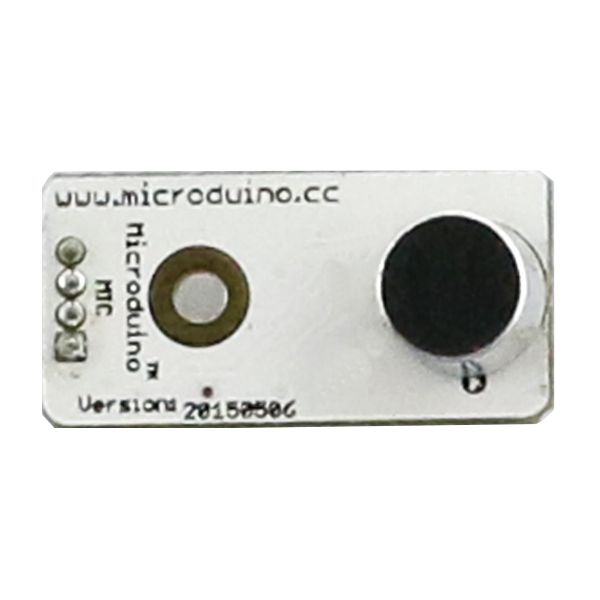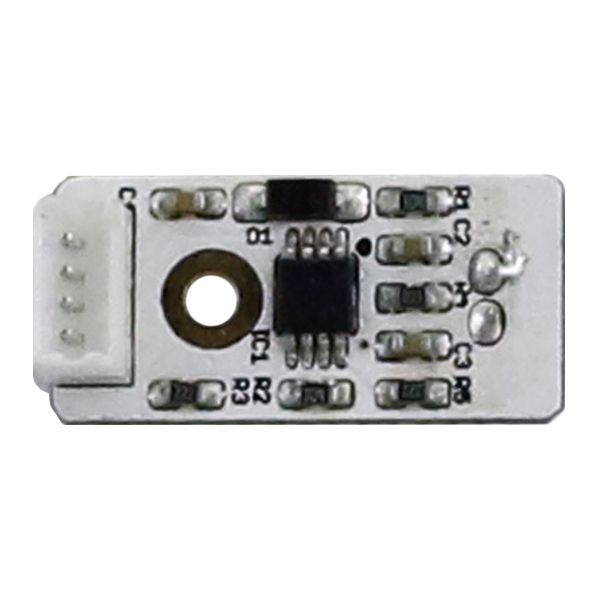|
Microduino- Microphone is a sound detection sensor.
Feature
- Capacitance sound detection component;
Specification
- Electrical specification
- Operation voltage: 3.3V~5V
- Input device
- Tech parameters
- Voltage measurement range: : 0~5V(Frequency range: 100Hz~4000Hz);
- Sound intensity range: 45~120dB;
- Accuracy:±1%
- Size
- Size of the sensor: 5mm*5mm,
- Size of the board: 20mm*20mm
- 1.27mm-pitch 4Pin interface
- Connection method
- Output: 0~5V analog signal
- Pin description: GND, VCC, signal output and NC(empty). Since the output signal is simulated, it needs analog interface to detect (A0-A7), which can connect to Sensorhub with the corresponding pins (A6. A2 and A0).
Document
Development
Preparation
Program
- Open " AnalogInput " in the libraries.
- int sensorPin = A0; Define the analog A0 as the input pin.
- sensorValue = analogRead(sensorPin); Read values of the pin.
Hardware Buildup
- Stack all modules together and then connect the Sound sensor to the A0 slot of Microduino-Sensorhub with the wire.
For reference: Microduino-Sensorhub
For reference: mCookie-Hub
- Connect the core, Sensorhub and the Microduino- Microphone to a computer with a USB cable.
- Select the right board and COM port, compile and download. You can refer to AVR Core:Getting started
- Select the right port number from Tools→Serial Port in Arduino IDE after compiling, then download the program.
- Open the serial monitor after download. The values displayed on the serial monitor reflect the sound intensity currently detected by the Sound sensor.
Application
Microduino- Microphone is suitable for collecting sound or sound vibration detection.
Project
Purchase
History
Pictures
|
